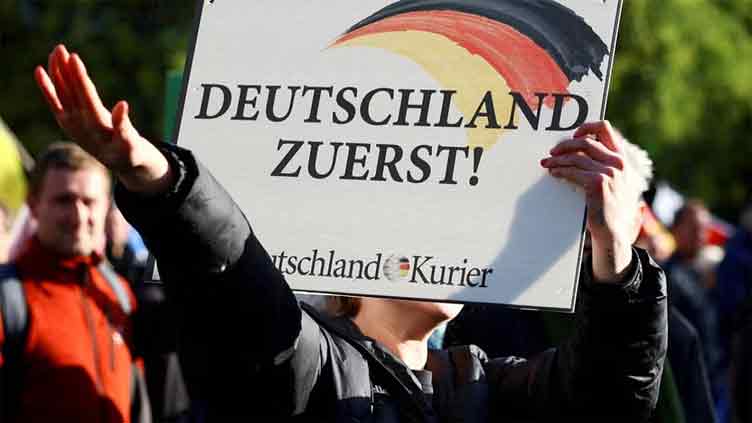Sounds familiar? High inflation fuels sense of rising inequality, mistrust of govt in Germany

Business
Country sees middle class between 2007 and 2019 to 63pc of the population from 65pc
BERLIN (Web Desk/Reuters) – People start losing faith in government when they are unable to meet their needs and the gap between the rich and the poor widens. It can happen anywhere in the world. However, the persistent inflation and stagnant economy with reducing purchasing power and fewer new economic opportunities thanks higher interest rates have fuelled these feelings in many countries.
The reason is simple as people feel helpless, thus developing a narrative that there is no one to care about them. And the rapid concentration of wealth since the Covid outbreak and the start of Ukraine war is proving a catalyst.
Here is an example, a survey reported by Reuters says Germany's highest inflation in decades has fuelled a rising sense of inequality and left a majority of Germans feeling abandoned by the government, leading to gains for the far-right AfD party.
But why AfD is the beneficiary? Because ultra-nationalists, fascists, populists and demagogues gain ground in this situation as they can spread their hate-based more easily with even bigger crowd ready to listen to them because of simple, albeit impractical and based-upon lies, solutions they offer. Just recall what happened after the Great Depression of 1930s.
According to the survey conducted by the More in Common research organization, some 80pc said they considered the economic situation in Germany as unjust, up 32 percentage points from 2021, and 60pc of Germans said they saw society as divided - principally between rich and poor - up 20 percentage points compared with May 2022.
The findings come as support for Chancellor Olaf Scholz and his coalition slumps and the AfD capitalises on voter insecurity, Reuters said.
The AfD last month won a vote for a district leader for the first time and is on course to win three upcoming state elections in east Germany. Its rise has drawn concern from the domestic intelligence service about extremism.
"Where dissatisfaction is growing across the board, the potential number of those who openly support right-wing populists is also growing in its wake," the study read, adding that 60% of Germans expect the economic situation to further deteriorate in the coming five years.
The survey of 2,016 people, in cooperation with Kantar Public polling institute, showed Germans blame both the government and Russia, following its invasion of Ukraine, for rising prices, at 45pc and 47pc respectively, and 68pc said they felt abandoned by politicians during the cost of living crisis.
German inflation has been on a downward trend, but is still much higher than the European Union's 2pc target. German consumer prices rose by 6.5pc on the year in July and the core inflation rate, which excludes volatile items such as food and energy, stood at 5.5pc in July, down from 5.8pc in June.
On Monday, a study by economic institute Ifo showed Germany's middle class had shrunk between 2007 and 2019 to 63pc of the population from 65pc, falling behind 13 European countries in its share.
Low and middle income households have been generally hit harder by inflation, Florian Dorn, a researcher at Ifo told Reuters. Workers in Germany, Europe's biggest economy, lost around 4.1pc of their purchase power in 2022, research by the WSI institute published in July showed.
Although higher energy import prices initially drove inflation in Europe and Germany, companies were also putting up prices beyond their cost inflation, WSI analysis showed. Companies' profit inflation rose by 7pc in 2022 compared to an only 3.3pc rise in labour costs.
"Inflation has made the misery much worse for some, but it's just a bit of a nuisance for others who really live in abundance," said Ulrich Schneider, managing director of German welfare association Der Paritaetische.

